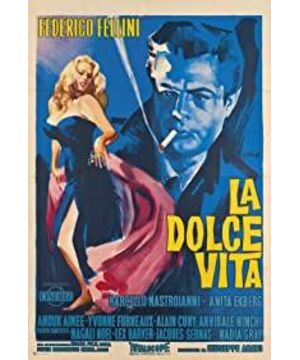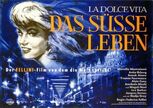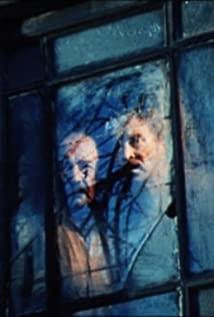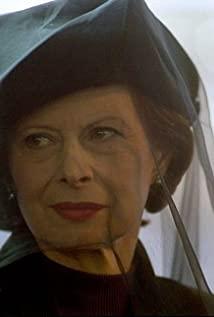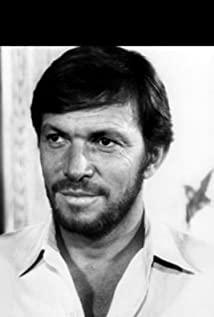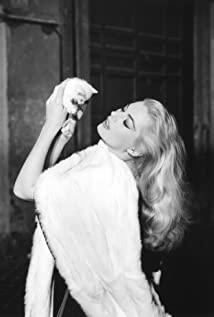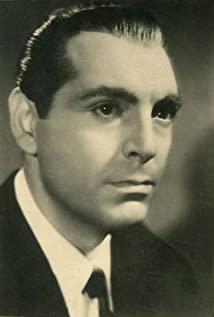On October 31, 1993, Fellini died, and Italy held a state funeral for him. His films mix reality, memory, dreams, fantasy and desire, best illustrated by the two English words Fellinian and Felliniesque derived from his name (Fellini).
Fellini's creation can be roughly divided into three stages. Before the 1960s, "The Road" (1954), "Liar" (1955), etc. were represented. The films during this period also had a clear "new realism" style. . From the 1960s to the 1970s, represented by "The Sweet Life" and "Eight and a Half" (1963), there were obvious "anti-story" characteristics at this time. After the 1970s, Fellini's films were more of a dream.
"La Dolce Vita" is a representative work of a turning point in Fellini's style. The film, with journalist Marcelo as the protagonist, describes the extravagance of the upper class at that time through party after party, but there is no restraint here. Behind the debauchery of the characters, the core conveyed is the emptiness of the characters' hearts.
At the beginning of the film, a helicopter rumbles over Rome, hanging a double-walled statue of Jesus Christ. When the helicopter passes a rooftop, in stark contrast are three young girls in bikinis. Sunbathing by the pool. When they saw the helicopter, they stood up and waved with excitement. Through the glass cover of the helicopter, they could see two young people, one was the protagonist of the movie Marcelo (Marcelo Mastroianni) and the other was him. Colleague Paparazzo (Walter Santesso), the word Paparazzo later became the name of the paparazzi in English. Marcelo shouted to several unfamiliar girls in the plane and wanted their phone numbers, but the noise of the helicopter was so loud that the girls did not hear what he said at all. This was the first communication failure. After reading this opening carefully, you will find that the main theme contained in it runs through the whole film, Marcelo's indulgence, the ineffectiveness of communication, the opposition between luxury and ruin, sacred and desire, solemn and frivolous.
The entire film is divided into 12 sections, and most of the scenes take place at night, alternately in the form of night, day, and night. Between night and day, it is like truth and lies, reality and fantasy, this kind of mystery that is detached from the boundary seems to make people have a confused and wild dream.
Marcelo's prodigal character was revealed on the first night, when Maddalena (Anouk Aimee) walked into the nightclub in a long black dress and sunglasses and said, "You bastards. When will the place be closed?" The audience was immediately attracted to her. She came from a wealthy background and had no worries about food and clothing, but her life was boring. But Marcelo just said hello to her and she said she wanted to go back, which shows that her purpose was just to pass the empty time. Then Marcelo got in her luxury car and wandered around Rome. Maddalena said she hated Rome and wanted to go to a new place with no acquaintances, but Marcelo said he liked Rome very much, "It seems like a virgin forest. Quiet people can easily find a place to hide."
Then they casually took a prostitute on the side of the road for a ride. To the prostitute, Marcelo and Maddalena were people from another world. Out of instinctual curiosity about different worlds, she asked if stop. As the luxury car drives to the prostitute's home, a scene of dilapidated, crumbling pavement, a dimly lit basement that contrasts immediately and before, seems to excite Maddalena in particular. Perhaps out of curiosity about the strange environment, or something else, Maddalena decided to spend the night with Marcelo and promised to give the prostitute 20,000 yuan. Naturally, the prostitute happily gave the room to the two of them. , When the two left the next day, she waved excitedly, "Whenever you want to come, come again."
Maddalena had said to Marcelo the night before, "What I need is spiritual support, but I don't have it. Only love can give me that strength." Maybe when she said that, she She knew in her heart that Marcelo was not what she needed.
When Marcelo returns home, what awaits him is his fiancée Emma (Magali Noel) who has attempted suicide. Emma symbolizes the shackles and trivial life of the family for Marcelo, while Emma She is also a motherly woman who is extremely possessive towards Marcelo.
On their way to see the "Apparition of the Virgin", Emma stuffed eggs and bananas into Marcelo's mouth, but was unwilling to give Paparazzo a sip of coffee. The image of Emma in Fellini's lens is negative , she is out of tune with the whole Roman high society, she is selfish, sensitive, suspicious, and she is also the real life that Marcelo cannot escape.
Half a century later, Paolo So Lentino made a parody and interpretation of the "Apparition of the Virgin" in "The Beautiful City" (2013). A little girl was forced by her parents to use the Pollock-style "drop painting method" to paint. She looked hysterical, but the onlookers watched with relish. At this time, only the outsider brought by the male protagonist - the stripper girl pointed out the problem, "That little girl is crying." However, the hero responded to her, "She is the cash cow for her parents."
If Maddalena is a symbol of Marcelo's high society within reach, a woman with whom he can develop a mature, authentic relationship, then Sylvia (Anita Eckberg) is content. Marcelo or Fellini's ultimate fantasy - a Marilyn Monroe-like woman. Marcelo's pursuit of her, the lust between them, the provocation between what they can get and what they can't get. Especially when Silvia climbed the dome of St. Peter's Church, directly below it was the great square of St. Peter's Church, flanked by fountains, and her blond hair fluttered in the breeze. The lust that was about to burst out filled between the two, and Marcelo was panting, trying to hold his breath, not daring to move like a child.
Sylvia's debut as a popular American star was superficial at first, because her appearance was so bright that people could only see her surface. However, as Marcelo chased her, her full-blown vitality began to have a crushing attraction to Marcelo, and the culmination of all this attraction occurred at the Trevi Fountain. The scene is probably one of the most iconic scenes in the entire history of cinema. Sylvia jumped into the fountain and danced with the waterfall, the splashing water sprinkled on her blonde hair, and Marcelo, who witnessed all this, seemed to suddenly feel that he was so mediocre. Everything is so mediocre, at this moment Sylvia has become an inviolable icon in Marcelo's heart, a distant dream, Marcelo can't help but ask, "Sylvia Ya, who are you?" At this moment, the sky suddenly brightened.
The Trevi Fountain also changed Anita Eckberg's life. After filming this scene, she found that she couldn't live without the Trevi Fountain, so she moved her home to Rome, where it became her home.
Steiner (Alain Guny) is an episode in Marcelo's life, an outsider who represents Marcelo's ideal life. Steiner hosted an art-filled salon attended by poets, singers, writers and other intellectuals. He has a beautiful wife, well-behaved children, and everyone is elegant and well-spoken, all of which fit Marcelo's ideal life. But when they met again, Marcelo realized that beneath the surface of a peaceful life was nothing but a web of countless lies.
The climax of the whole story takes place on the last night, in a modern villa in a seaside town, where dozens of young men and women of Roman high society are having fun. As the full music sounded, all the characters came on stage and began to revel in a frenzy, leaving no room for people to breathe. Watching the frenzy of the crowd is like visiting a modern bourgeois circus.
After dawn, a group of people with dull eyes and withered eyes walked towards the beach in an exaggerated manner. An ugly fish salvaged by the fishermen now echoes the Jesus statue at the beginning of the film. At this time, Marcelo meets Paula (Valeria Ciangottini) again, the pure girl who once made him arouse desire. He said something to him from a distance, but Marcelo didn't say a word. I didn't hear it, once again the failure of communication. The purity and innocence that Paula possesses is what Marcelo has lost, and this time represents Marcelo's complete farewell to the past. In Fellini's words, Paola represents "Marcelo's nostalgia and no longer romance."
Fellini said that Rome was a "city of the heart" and an "eternal city". Everyone lives in their own fantasy world, but most people don't understand this, and no one can capture the real world. Fellini is great because he, like other great directors, writers and musicians, has created infinite dreams for mankind
View more about The Sweet Life reviews


